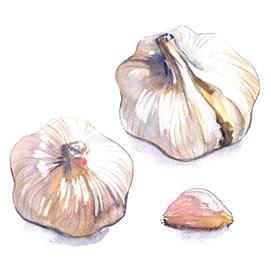
2 minute read
Expert Answers
with Dr. Jen EXPERT An s wers
QDear Dr. Jen, I have heard that there is a concern over antibiotic-resistant bacteria and the overuse of antibiotics, but I get prescribed one every spring when my allergies or a cold becomes a sinus infection. Do I need to worry about this? —C.S., Abbotsford A By the end of the Second World War, penicillin, the first pharmaceutical antibiotic, was nicknamed “the wonder drug.” Since then, antibiotics have saved millions of lives. However, only a decade after this major advance came the onset of antibiotic resistance. In as early as the 1960s, methicillin-resistant Staphylococcus aureus (MRSA) was identified, and since then resistance has been seen to nearly all antibiotics that have been developed.

Oregano contains carvacrol, a potent phenol that inhibits microbial growth.
DR. JENNIFER BRIX is a naturopathic doctor, health educator for Natural Factors, and public speaker with a passion for empowering her patients to achieve optimal health. Dr. Jen has special expertise in treating digestive complaints, hormone imbalances, and brain-related health conditions. She has a busy active practice at Brix Wellness Clinic in Kelowna, BC.
29 | March/April 2020 Studies have shown that allicin, a component in garlic, exhibits antimicrobial activity.

But, there is new promise found in the traditional field of herbal medicine. Constituents in certain plants show broad and significant antibacterial activities against pathogenic bacteria, and even antibioticresistant bacteria including MRSA. Oregano (Origanum vulgare) contains carvacrol, a potent phenol that inhibits microbial growth, is an antioxidant, and has shown to have preclinical anticancer activity. Garlic (Allium sativum) has a powerful active antibacterial component named allicin, which has been shown in studies to exhibit antimicrobial activity at low concentrations against several pathogenic microorganisms like E. coli and Staphylococcus aureus.
Horseradish (Armoracia rusticana) is recognized as a non-prescription medicine for upper respiratory tract infections by the German Commission E. This condiment is known for the antimicrobial benefits of its isothiocyanates (ITCs) and for helping eliminate the oral bacteria responsible for bronchitis and coughs.
With antibiotic resistance becoming a greater concern to doctors and patients alike, scientists are looking to nature when developing new medications. With new clinical findings, there is hope that more natural based medicines will be viewed as effective in providing antibiotic activity without the encouragement of the antibiotic resistance crisis we are trying to work our way out of.










